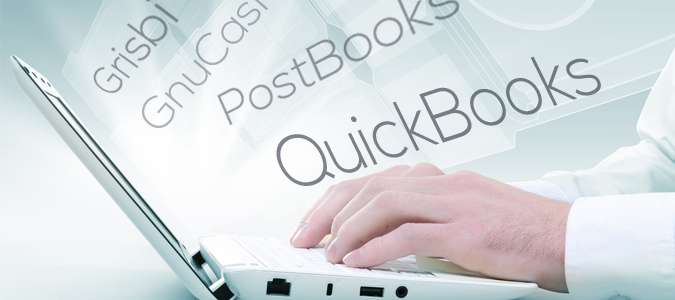Technology in Business: A Brave New World
In today's rapidly evolving business landscape, technology plays a pivotal role in driving growth, efficiency, and innovation. The digital revolution has transformed how businesses operate, opening new avenues for productivity and efficiency. From cloud computing to artificial intelligence, technological advancements are reshaping industries and redefining traditional business practices. In this brave new world, embracing the right technology is not just an option but a necessity for staying competitive and relevant.
The Need for Accounting Systems in Business
Every successful business, regardless of its size, relies on accurate and efficient accounting systems. Accounting is the backbone of any organization, ensuring that financial transactions are recorded, tracked, and analyzed. Without a robust accounting system, businesses risk financial mismanagement, compliance issues, and missed growth opportunities. An effective accounting system provides:
-
Financial Accuracy: Ensures that all financial records are accurate and up-to-date, reducing the risk of errors.
-
Regulatory Compliance: Helps businesses comply with tax laws and financial regulations.
-
Informed Decision-Making: Provides critical financial insights for strategic planning and decision-making.
-
Efficiency: Automates repetitive tasks, freeing up time for more strategic activities.
Total Cost of Ownership: Open Source vs. Proprietary
When choosing accounting software, businesses must consider the total cost of ownership (TCO). TCO includes the purchase price, implementation costs, ongoing maintenance, and potential upgrade expenses. Two primary options are available: open source and proprietary software.
Open Source Software:
-
Initial Cost: Generally free or significantly lower than proprietary software.
-
Customisation: High flexibility for customization to meet specific business needs.
-
Community Support: Active community forums and support.
-
Maintenance: Requires in-house technical expertise for maintenance and updates.
Proprietary Software:
-
Initial Cost: Higher upfront costs with recurring license fees.
-
Support: Dedicated customer support and regular updates from the vendor.
-
Ease of Use: Typically user-friendly with comprehensive features tailored for businesses.
-
Maintenance: Vendor handles maintenance and updates, reducing the need for in-house expertise.
While proprietary software offers ease of use and support, open source solutions provide cost savings and customization flexibility, making them a viable option for businesses looking to optimize costs without compromising performance.
Modern Accounting Software: Contribution to Business Efficiency
Modern accounting software has revolutionized financial management by automating processes and providing real-time insights. Key contributions to business efficiency include:
-
Automation: Automates routine tasks such as invoicing, payroll, and expense tracking, reducing manual errors and saving time.
-
Integration: Integrates with other business systems (e.g., CRM, ERP) to provide a unified view of operations.
-
Real-Time Data: Offers real-time financial data and analytics for better decision-making.
-
Scalability: Grows with the business, accommodating increased transaction volumes and complexity.
-
Accessibility: Cloud-based solutions offer anytime, anywhere access, enabling remote work and collaboration.
Recommendations for Open Source Accounting Packages that Won't Break the Bank
For businesses looking to leverage accounting software without incurring high costs, here are some recommended open source accounting packages:
-
GnuCash:
-
Features: Double-entry accounting, expense tracking, invoicing, and financial reports.
-
Benefits: User-friendly interface and comprehensive features suitable for small businesses.
-
-
Odoo:
-
Features: Integrated suite of business applications, including accounting, CRM, and inventory.
-
Benefits: Highly customizable and scalable, suitable for growing businesses.
-
-
FrontAccounting:
-
Features: Inventory management, sales orders, purchase orders, and financial reporting.
-
Benefits: Lightweight and easy to use, ideal for small to medium-sized enterprises.
-
-
LedgerSMB:
-
Features: Multi-currency, accounts payable/receivable, and robust financial reporting.
-
Benefits: Strong security and compliance features, suitable for businesses with complex needs.
-
- Turbocash:
- Features: General Ledger, Expense Tracking, Inventory Management, Invoicing, Sales Tax and VAT, Financial Reporting, Multi-Currency Support, Bank Reconciliation, Custom Report Building, Time Tracking.
-
- Benefits: User-Friendly Interface, Cost-Effective, Flexibility, Data Security, Integration (Connects with popular small business tools like PayPal, Square, Gusto, and bill.com), Real-Time Visibility, Automation, Support.
-
ERPNext:
-
Features: Comprehensive ERP solution with accounting, HR, manufacturing, and project management modules.
-
Benefits: All-in-one solution with extensive customization options, ideal for businesses of all sizes.
-
Embracing accounting software is essential for modern businesses seeking efficiency and accuracy in financial management. While proprietary solutions offer ease of use and support, open source accounting software provides a cost-effective alternative without compromising on performance. By carefully evaluating the total cost of ownership and choosing the right solution, businesses can enhance their financial operations and thrive in the competitive market landscape.
In the brave new world of technology-driven business, you don't need to break the bank to achieve top-tier performance. Open source accounting packages offer a robust, customizable, and affordable solution to meet your financial management needs, empowering your business to grow and succeed.
Written by: Robert Cordner
Robert is a business support specialist operating in Botswana.
Email:
